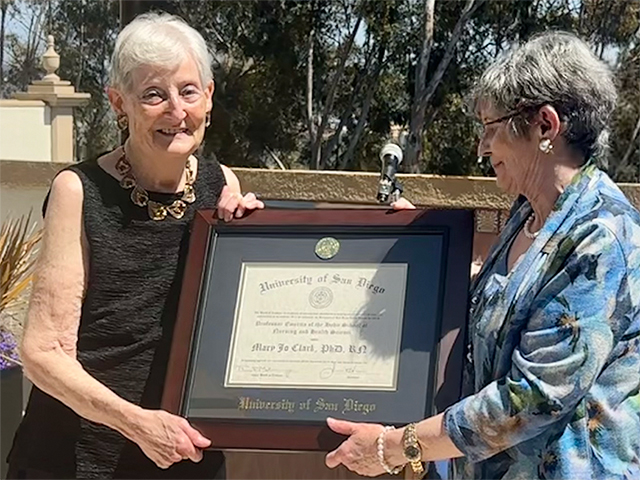Words — Six to be Exact — Matter to Journalist-Author Michele Norris in "The Race Card Project"
“Fool Them All, Not Done Yet”/” Still More Work to Be Done.”
—Michele Norris’ personal six-word thoughts on race and identity for “The Race Card Project.”
Michele Norris is an award-winning journalist, a former National Public Radio host on the popular show, "All Things Considered," a newspaper journalist who got her start with the San Diego edition of the Los Angeles Times, and who, in 2010, authored a book, The Grace of Silence. Each of her pursuits provides context for her work experiences, her talent and a distinguished career.
The two phrases at the top, each six words long, are equally powerful and memorable. Both are her answer to a question that she has also posed to the world — think about the word “race” and how would you distill your thoughts, experiences or observations about race into a six-word sentence. In return, she's received thousands of responses on postcards from people for an exercise called The Race Card Project.
On the surface, it seems like a simple exercise. But just as The Grace of Silence was borne out of learning new things about her family that were not spoken to her until she stumbled upon "secret stories" later, the Race Card Project has been just as potent to gauge what people are thinking and willing to share on a postcard.
"I went out into the world after I wrote my book and I created the Race Card Project because I was afraid," she said. " I was afraid that having conversations like the one I'm having with you tonight would be difficult. I invited people to share their stories, thinking that if I shared my story maybe it would be a way for people to share theirs. I asked them to think about race and identity in their own life. What if you only had one sentence to share your own story about race and that sentence only had six words?"
Norris shared several six-word postcards she has received over the years during her talk.
"Father was Racist. I'm Not. Progress!" said one man's story, though Norris expressed hope that the son has or had a chance to discuss this with his father.
"No Word for What I Am," said one woman's reply about paperwork that doesn't account for the multi-racial family she’s from. "Feeling Uncomfortable in My Own Skin," said another thought-provoking response.
"Married a White Girl, Now What?" opens the possibility of a conversation about cross-cultural marriage and perceptions received because of it. Still another reality is when someone is asked, "No, Where are You Actually From?" when the response to said question is that they live locally and are not from another country.
Norris' own first six-word example speaks to her persistence and resiliency growing up. "I grew up in Minnesota as a brown girl with a speech impediment. The world that I live in, the jobs I've had and the road I've traveled was not imagined for me as someone born in the early 1960s," she said.
Her six-word sentence has changed in recent years — she’s a big advocate for people to listen to others better — and she has a hopeful outlook as all of us have room for improvement.
"The six words I land on most often now are Still More Work to Be Done because we often talk about race and identity and our debate over difference. Is this ever going to be over? I don't think it will. That's part of the benefit of living in a nation as barricaded as this, as diverse as this. There will always be differences, we will always have to figure out how to understand the beauty of those differences, also the difficulty of those differences and realize that it is part of our strength."
Norris’ appearance Monday night at the University of San Diego’s Joan B. Kroc Institute for Peace and Justice Theatre was part of a two-event celebration in recognition of February’s Black History Month and the Women’s History Month in March.
The other event was a Feb. 20 panel discussion on “The Depths of Black Silence,” at the San Diego Central Library with USD professors Channon Miller, PhD, History, Cory Gooding, PhD, Political Science, and moderator/panelist Vanjury Dozier, MLIS, Education Librarian. The three discussed Norris’ book, The Grace of Silence, and explored how silence is interwoven with respectability, shame and anger as it permeates familial interactions, gender dynamics and conceptions of Black citizenship.
“Drs. Miller, Gooding and Dozier were phenomenal during their panel discussion,” said USD’s Dean of the Library, Theresa S. Byrd. “Because of our professors, the SDCL’s program was a big success. Both this program and Michele Norris’ presentation are a part of a wonderful collaboration Copley Library has with the San Diego Public Library.”
— Ryan T. Blystone
Video by Daniel Telles. Photo slideshow images by Ryan T. Blystone and Feb. 20 panel photo provided by Dr. Theresa Byrd.
Contact:
USD News Center
news@sandiego.edu
(619) 260-4681




